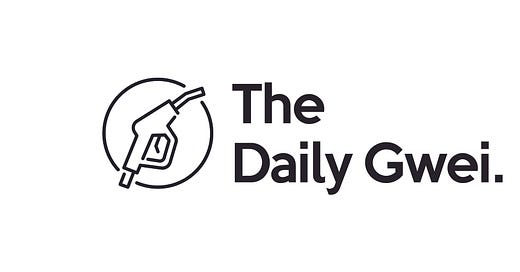Over the last few months many tokens have launched and with their launches came an “airdrop” to previous users of a protocol. Obviously the most high-profile example of this was the Uniswap airdrop which gave away 400 UNI tokens to every user of the protocol since launch and even more tokens to liquidity providers.

Of course, we’ve had many other airdrops since Uniswap like Tornado Cash, 1inch, Badger DAO, PoolTogether, Index Coop and more. Usually these airdrops are done in the same way where previous users of the protocol get some tokens and, to be honest, I think this is uninspiring and leads to misalignment of stakeholders. This is because these tokens are usually meant to be used to participate in “governance” but what ends up happening is that most people just dump their tokens for some “free” money and have no interest in voting on anything. I’m not saying that people “cashing in” is necessarily a bad thing but if the goal of an airdrop is to build a healthy token holder base then there are better ways to do it.
One project that actually innovated here was Badger DAO as they airdropped tokens to users of a bunch of different protocols on Ethereum. As Viktor notes above, they also airdropped tokens to Gitcoin contributors which I think was the first instance of this happening in an airdrop. I think this is actually quite a big deal because from my experience users of Gitcoin are usually those who are very involved in the Ethereum ecosystem and are more likely to actually participate in the “boring” things like protocol governance. A bonus with Gitcoin is that you also have “real” users because there are sybil-resistant mechanisms built into the platform that allow you to have pretty strong assurances that you’re airdropping fairly.
Outside of airdrops, I think there are many other ways a project can distribute tokens to better align incentives such as having a liquidity mining program with vesting (like Synthetix and SushiSwap), paying out tokens to those who contribute real value to the project, having a “strategic fundraise” where the DAO sells tokens to some key ecosystem players in order to get alignment and more. I also wrote about Inverse Finance last week and went over how they actually seized inactive token holders INV tokens as they weren’t contributing to the DAO (though as the tokens are now tradable the ability to seize them has been disabled).
Overall, there’s still a massive green field left for exploring how to distribute governance tokens in a way that is fair and that also adds value to the protocol itself. Voter apathy is a real issue for all protocols but if you can get tokens into the hands of the most aligned people then you can potentially avoid pitfalls such as low voter turnout, a tyranny of the minority or simply a token holder base that doesn’t care at all about the project.
Have a great day everyone,
Anthony Sassano
Join the Daily Gwei Ecosystem
All information presented above is for educational purposes only and should not be taken as investment advice.




